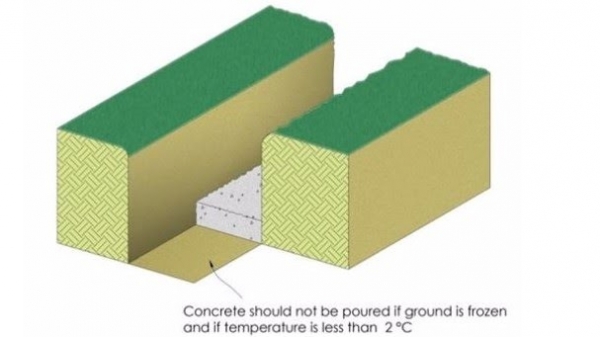Tech Update: Using Concrete In Cold Weather
Concrete is a fundamental ingredient in modern construction and it is important to understand how the material can be used in the winter months. The following provides an overview of the LABC Warranty technical guidance on using concrete in cold weather conditions.
Minimum Working Temperature for Concrete
When working with concrete in cold weather, the minimum working temperature should never fall below 2°c. It’s important to monitor the temperature if you’re working with concrete on your site. Regular readings should be taken with thermometers placed away
from direct sunlight, preferably in shaded areas. When taking these readings it’s important to consider other factors which could impact the actual temperature on site (e.g. wind chill or the level of exposure on site).

The Differences Between Using Ready Mixed Concrete and Site Mixed Concrete In Cold Weather
Ready Mixed
British Standards require that Ready mix concrete should not be
below 5°C at the time of delivery. It’s important that you take measures to ensure that
immature concrete is prevented from freezing before sufficient strength has been
achieved.
Site Mixed
Site mixed concrete can be mixed on site at low temperatures providing the minimum temperature never reaches lower than 2°C, the concrete must also be protected during curing and the sites ground conditions are not frozen.
Pouring in Cold Weather
Concrete should not be poured if the ground is frozen as frozen ground alters in stability and volume as it thaws. This is likely to cause damage to recently poured concrete.

In order to prevent freezing during cold weather it may become necessary to cover the ground and in some extreme cases heating the ground may be needed.
Other concreting: Concrete reinforcing and formwork should not be frozen and be free from snow and ice.
Curing of Concrete
Concrete will take much longer to cure in cold weather and can, take an additional six days to cure when temperatures are really low. This means that building work above the concrete may have to be delayed until the concrete reaches a suitable strength. Covering the concrete with rigid insulation board will assist in preventing freezing.

